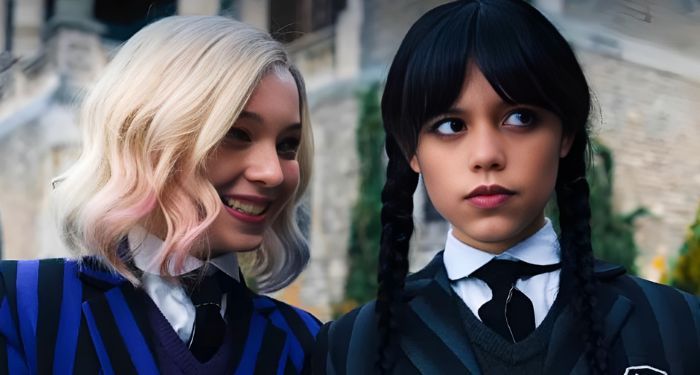
It may be divided into eight episodes, but it’s a season with four mysteries—the set-up in the odd-numbered episodes and the resolution in the even ones. Throughout the entire run, there’s the backdrop of another secret that taps into a severe problem in Canada (and the U.S., too): the disappearance of young Indigenous women and the lack of effort by law enforcement to find them. When Gamache intervenes in support of an Indigenous woman trying to find her missing child named Blue Two-Rivers (Anna Lambe) in the opening scene, he’s blacklisted to the small town of Three Pines to solve what looks like an accident—a woman who was electrocuted at a curling match. But, of course, it wasn’t an accident, and Gamache solves the case while also doing the due diligence on the subject that opened the show. That one will take all season, which becomes a theme in its very construction—while Gamache and his colleagues are solving crimes in Three Pines, a girl the authorities seem to have forgotten is still missing.
The cases are elaborately ridiculous in a way that pushes on the edge of disbelief, but Molina sells them. We see these studies of family secrets—that’s the theme—through the eyes of a man who seems smart, empathetic, and driven. Molina is a performer that doesn’t naturally shine with showy screen presence. Still, he has the ability to ground projects like this one, which keeps the melodramatic plotting around him from spinning the show out of control. For example, the third case centers on a family with a patriarch who leaves a massive hotel to the estranged child who left the family years ago. When she ends up dead, Gamache gathers all of the family members in a room like he’s Hercule Poirot and unpacks their motives and histories. Of course, the number of grudges and secrets in that room stretches credulity, but Molina’s unshaken ability to be present in a scene keeps us there too. He’s joined by solid work from Rosif Sutherland and the excellent Elle-Máijá Tailfeathers as local officers.

History plays a role in all five cases in “Three Pines,” as Penny and the creators capture one of those small towns with secrets that refuse to stay buried as an entire country reckons with secrets of its own. There’s a river of social commentary through the plotting of “Three Pines” as the creators comment on justice as much as solve crimes. For example, the first episode centers on the death of a woman nobody liked, but she’s wealthy and white, so she gets the attention that the missing Blue Two-Rivers never gets unless someone like Gamache demands it. And each of the mysteries, without spoiling, features old secrets and grudges—the suggestion being that family wounds will never heal.
























































![Key Metrics for Social Media Marketing [Infographic] Key Metrics for Social Media Marketing [Infographic]](https://www.socialmediatoday.com/imgproxy/nP1lliSbrTbUmhFV6RdAz9qJZFvsstq3IG6orLUMMls/g:ce/rs:fit:770:435/bG9jYWw6Ly8vZGl2ZWltYWdlL3NvY2lhbF9tZWRpYV9yb2lfaW5vZ3JhcGhpYzIucG5n.webp)


















